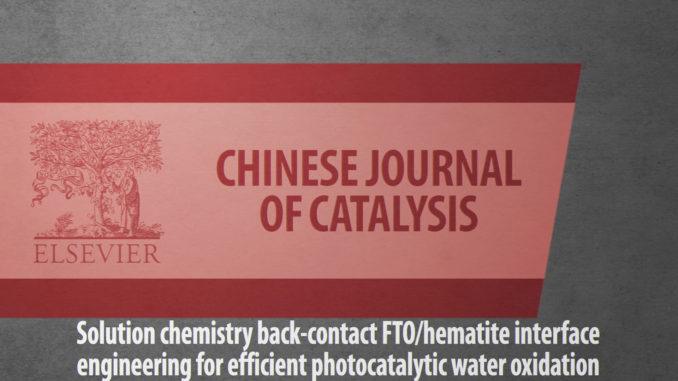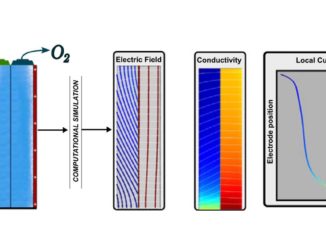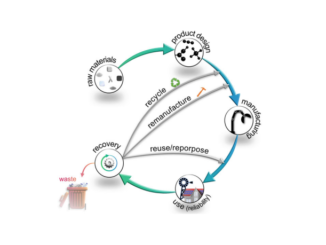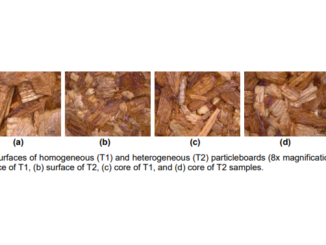
Solution chemistry back-contact FTO/hematite interface engineering for efficient photocatalytic water oxidation
Abstract: This work describes a simple yet powerful scalable solution chemistry strategy to create back-contact rich interfaces between substrates such as commercial transparent conducting fluorine-doped tin oxide coated glass (FTO) and photoactive thin films such as hematite for low-cost water oxidation reaction. High-resolution electron microscopy (SEM, TEM, STEM), atomic force microscopy (AFM), elemental chemical mapping (EELS, EDS) and photoelectrochemical (PEC) investigations reveal that the mechanical stress, lattice mismatch, electron energy barrier, and voids between FTO and hematite at the back-contact interface as well as short-circuit and detrimental reaction between FTO and the electrolyte can be alleviated by engineering the chemical composition of the precursor solutions, thus increasing the overall efficiency of these low-cost photoanodes for water oxidation reaction for a clean and sustainable generation of hydrogen from PEC water-splitting. These findings are of significant importance to improve the charge collection efficiency by minimizing electron-hole recombination observed at back-contact interfaces and grain boundaries in mesoporous electrodes, thus improving the overall efficiency and scalability of low-cost PEC water splitting devices.
Author(s): Bedin, K.C.; Mouriño, B.; Rodríguez-Gutiérrez, I.; Souza Junior, J.B.; Santos, G.T.; Bettini, J.; Costa, C.A.R.; Vayssieres, L.; Souza, F.L.
Chinese Journal of Catalysis
Published: May 2022, Volume 43, Issue 5, Pages 1247-1257
DOI: https://doi.org/10.1016/S1872-2067(21)63973-6
CDMF
The CDMF, hosted at the Federal University of São Carlos (UFSCar), is one of the Research, Innovation and Dissemination Centers (RIDC) supported by the São Paulo State Research Support Foundation (Fapesp), and also receives investment from the National Council Scientific and Technological Development (CNPq), from the National Institute of Science and Technology of Materials in Nanotechnology (INCTMN).




